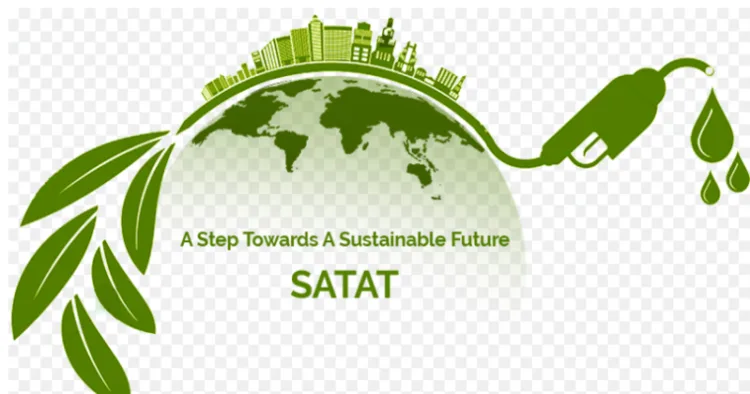The Indian government is reinforcing its commitment to the Sustainable Alternative Towards Affordable Transportation (SATAT) scheme, initiated in October 2018, which aims to increase the adoption of compressed biogas (CBG) across the country. Despite the ambitious goal of establishing 5,000 CBG plants by 2023-24, only 72 plants have been commissioned to date. This underperformance can be attributed to various factors, including the economic slowdown caused by the COVID-19 pandemic and a lack of investor interest.
SATAT is part of the central government’s broader strategy to diversify the energy mix by increasing the share of alternative fuels, such as ethanol and CBG, in the country’s energy portfolio. The primary objective is to attain net-zero emissions by 2070. To support this vision, the government has received over 3,000 Letters of Intent from various Indian oil companies expressing interest in setting up CBG plants, indicating a growing recognition of the potential for CBG as a sustainable energy source.
According to Gaurav Kedia, Chairman of the Indian Biogas Association, the government is actively working to provide competitive pricing for CBG and offering financial support for the development of gas pipelines. However, the consistent availability of feedstock remains a significant challenge for biogas production. Kedia emphasized that while waste may be present, ensuring its availability at the right price, time, and quantity is a complex issue. This is particularly challenging from an agricultural standpoint, where various stakeholders must be engaged.
To tackle these challenges, the Ministry of Petroleum and Natural Gas (MoPNG) has introduced a separate subsidy scheme aimed at encouraging investment in biomass collection and CBG production. The government is also promoting the use of biomass a resource widely and cheaply available in India to reduce dependency on foreign energy sources. Currently, India imports more than 85% of its crude oil and nearly 50% of its natural gas.
In the interim budget presented in February, Finance Minister Nirmala Sitharaman announced financial assistance for procuring machinery essential for biomass collection. The government has allocated Rs 564 crore for this initiative from FY24 to FY27. Furthermore, to support CBG producers, the government has introduced grants covering up to 50% of the machinery cost, capped at Rs 90 lakh per set.
To enhance the adoption of CBG, the government announced a phased approach to mandatory blending of CBG with compressed natural gas (CNG) and domestic piped natural gas (PNG). The blending obligation will initially be voluntary until 2024-25, transitioning to mandatory blending starting from FY26. The targets for blending are set at 1 per cent in FY26, increasing to 5% by FY29. A central repository body (CRB) will oversee the monitoring and implementation of this blending mandate.
Petroleum and Natural Gas Minister Hardeep Singh Puri stated that the blending obligation could attract around Rs 37,500 crore in investments, leading to the establishment of 750 CBG projects by 2028-29. This initiative aims not only to stimulate demand for CBG in the city gas distribution sector but also to reduce reliance on imported liquefied natural gas, ultimately saving foreign exchange.
Several major energy companies in India, including Reliance Industries Ltd (RIL), Indian Oil Corporation Ltd, and Bharat Petroleum Corporation Ltd, have committed to establishing CBG plants. RIL, for instance, aims to set up 100 CBG plants over the next five years, utilizing approximately 5.5 million tonnes of agricultural residue and organic waste.
The transition towards biofuels, derived from organic and agricultural materials, presents a significant opportunity to reduce emissions and meet global net-zero carbon emission targets. As countries worldwide increasingly turn to sustainable energy solutions, India’s efforts to promote CBG through the SATAT scheme align with this global trend, positioning the nation as a key player in the bioenergy sector.
In conclusion, the government’s initiatives to enhance the production and adoption of compressed biogas reflect a critical step towards achieving energy security and environmental sustainability, driving India closer to its ambitious climate goals.













Comments